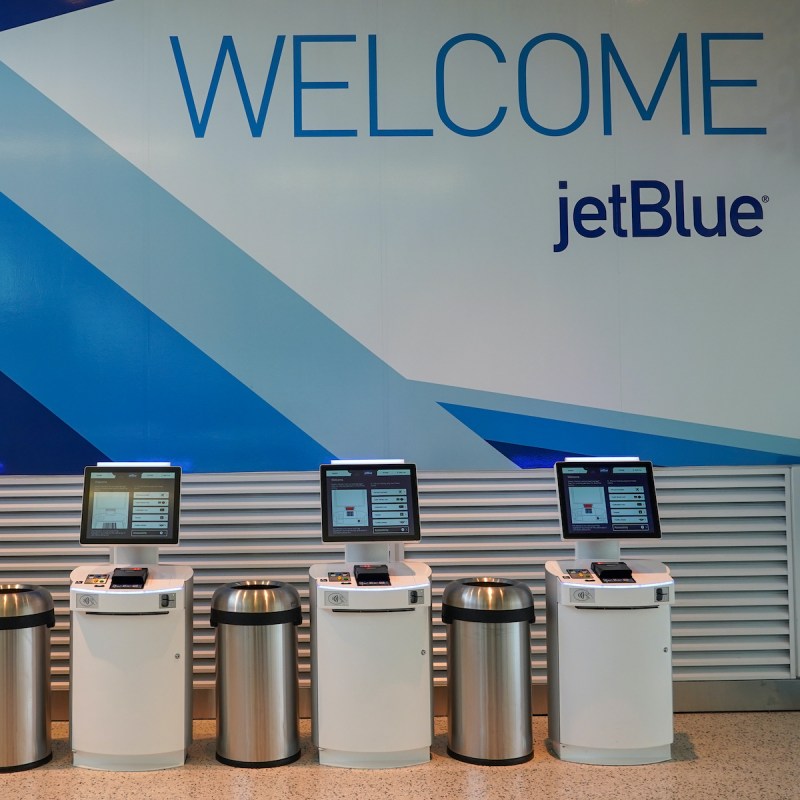
One day after a deal merging Spirit Airlines with Frontier Airlines fell apart, Spirit has found another suitor.
Videos by TravelAwaits
JetBlue is purchasing the low-cost carrier for $3.8 billion in a merger that will — if approved by federal regulators — create the nation’s fifth largest airline.
“We are excited to deliver this compelling combination that turbocharges our strategic growth, enabling JetBlue to bring our unique blend of low fares and exceptional service to more customers on more routes,” Robin Hayes, CEO of JetBlue, said in a statement.
He noted the merged company would continue its goal of “disrupting the industry to bring down fares from the Big Four airlines.”
Industry experts, however, fear the opposite will occur. Spirit, Frontier, and Allegiant Air are among the few airlines offering lower fares than the competition.
“Spirit and Frontier play a big role in the fare you pay, even if you never fly either one,” Scott Keyes, founder of Scott’s Cheap Flights, told CNN. “When Delta announced the basic economy fare in 2012, they described it to investors as a ‘Spirit-matching fare,’ because their lunch was getting eaten by the budget carriers of the world.”
But officials from Spirit and JetBlue are determined to keep fares down, they told CNBC among rumors the deal could be held up by the Justice Department.
“We’re focused on getting this deal done,” Hayes said. “We’re focused on bringing more airplanes in, offering more low fares and great products to customers in more geographies than JetBlue or Spirit could do alone.”
Spirit CEO Ted Christie agrees.
“They’ve got an aggressive strategy to get this deal done,” Christie said. “We’re going to be right by their side making sure it happens, because it’s good for our group. Some of the narrative is this is going to create a big national competitor to the Big Four.”
William McGee of the American Economic Liberties Project is beyond skeptical.
“Spirit is going to disappear, and with it, its low-cost structure,” McGee told the Associated Press. “Once Spirit is absorbed (into JetBlue), there is no question that fares are going to go up.”
JetBlue and Spirit officials, however, believe the merger will be beneficial in battling the top four airlines — American, Delta, United, and Southwest — that control 80 percent of the market.
“We believe we can uniquely be a solution to the lack of competition in the U.S. airline industry and the continued dominance of the Big Four,” Hayes said. “By enabling JetBlue to grow faster, we can go head-to-head with the legacies in more places to lower fares and improve service for everyone.”
If approved, the merger will create an airline offering:
- More than 1,700 daily flights to more than 125 destinations in 30 countries, based on December 2022 schedules.
- Airline hubs in Las Vegas, Dallas, Houston, Chicago, Detroit, Atlanta, and Miami
- An increased presence in several key cities, including Los Angeles, San Juan, Puerto Rico, Orlando and Fort Lauderdale.
- A combined fleet of 458 aircraft, with more than 300 aircraft on order from Airbus, a number that the airlines claim will mitigate issues on lack of available planes to fly routes.
For more on Airports and Flying, check out these articles:
